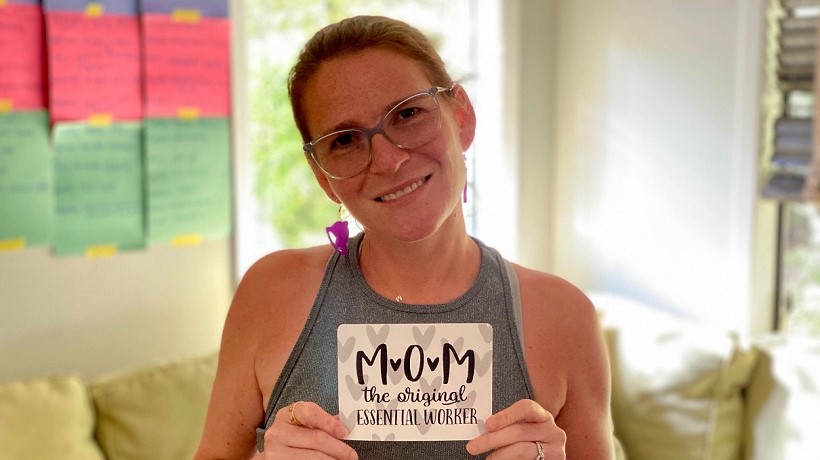Life as a rabbi can be hard. Life as a parent can be hard. Life as a woman can be hard. Put them all together, and it makes for a fairly challenging journey at times.
While this is my personal combination of life experiences and identities, we all have some combination of struggles and challenges we’re facing at any given moment. There are times for all of us when our particular combination makes balancing everything more difficult. Like everyone, I have good days and bad days, and, like everyone, it never fails that when I’m struggling with something in one aspect of my life, other aspects are affected too. Why is it that work always seems to escalate when my children are at their neediest?

It’s in these moments – when everything piles up at once – that I’m grateful for my “village.” My village is a tight-knit circle of friends who have similar life combinations and understand exactly what it’s like to be where I am. Most are working mothers, and some are rabbis too. This village of women is present for me at my highest of highs, and they let me sit in a puddle of tears in their offices (or virtually now) when I don’t think life can get any worse. They support me through 3 a.m. text messaging sessions and playdates where we try to hide from the kids. They cut out shapes for programs I lead because I can’t do it, and they entertain my children when I’m on my last nerve. This village is the best company I could imagine keeping.
My village does this for me because they know I do it for them. It’s important that we hold each other up; we never tear each other down or criticize (unless we’ve been asked). We don’t judge the messy kitchen, the unwashed hair, or the kid wearing a tank top in the fall. We commiserate and collaborate. Each of us is the village, and the village is us.
In our Torah portion this week, Parshat Re’eh, we learn of the importance of having this type of village to surround you. In our parshah we learn about the blessings and curses that will come with observance (or lack thereof) of the mitzvot we’re given. We receive some final warnings about following the laws against idolatry, laws for keeping kosher, and the importance of treating each other as equals. Finally, we receive some more information on our three pilgrimage festivals.
As God is listing these rules, a curious section of text about living with idolaters stands out. The text states that all living in the town of idolaters shall be put to the sword. Is this saying that if you live amongst idolaters, even if you yourself are not one, you will be put to death? Again, the village is a representation of you, both positive and negative.
Whether it’s the beginning of a new nation or a parent teaching a child or a reminder to ourselves about our own friends, the lesson is clear: the company you keep is who you become, for better or worse. How does your village help you be the best version of yourself?



